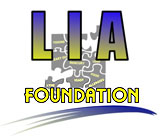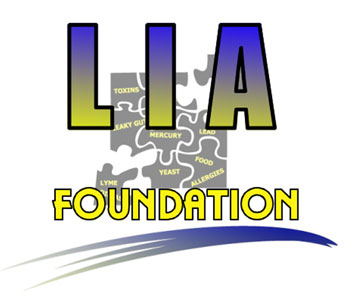|
Now Available!
Published July 1, 2008.
|
287 Pages - $25.95
Ordering Options |
|
Order
Online

Order
by Phone
(530) 541-7200 |
Written in collaboration
with LIA Foundation

Meet
the Authors...

Bryan Rosner
Author, Health Care Journalist
Read Bryan's Preface

Tami Duncan
Contributing Writer
Co-Founder, LIA
Foundation
Read
Tami's Preface
Book
Excerpts:
Tami's Preface
Bryan's Preface
Symptoms vs.
Syndromes
Medical
Hypothesis Article
Robert Bransfield,
M.D.
Enlarged Cover
Index (allow
time to load)
|
|
 Back
to overview page
Back
to overview page
Symptoms vs. Syndromes
At first glance, the obvious question to ask in this chapter is whether or not the symptoms of Lyme disease overlap with the symptoms of autism. As you will see, however, this question is much too broad. You will see that Lyme disease is known as the “great imitator” because it can mimic dozens of seemingly unrelated health problems. Lyme disease symptoms overlap with just about every mental illness, so it is not very impressive to show that they also overlap with autism.
For this reason, we will instead take a narrower look at the symptom similarities between Lyme disease and autism, and delve further into analyzing the overlap. Namely, we will not look at individual symptoms the diseases share in common, but instead at entire disease syndromes which the two diseases share in common. For example, we will go further than to just say “Lyme disease and autism both cause headaches.” Rather, we will say that “Lyme disease and autism both manifest as schizophrenia.” A headache is an individual symptom, while schizophrenia is a complex syndrome.
For our purpose of further analyzing the Lyme-autism connection, it is more helpful to look at overlapping disease syndromes instead of just overlapping symptoms because disease syndromes are much more complex, specific, and isolated than are individual symptoms. Many things can cause a headache, such as fatigue, a bad lunch, or a fight with a spouse. So, demonstrating that Lyme disease and autism both cause headaches does not add much support to the Lyme-autism connection. Schizophrenia, on the other hand, is not caused by many factors, and cannot be confused with simple triggers like a bad hamburger or emotional stress. By narrowing the comparison down to specific disease syndromes, we can build a much stronger case for the Lyme-autism connection.
|
|
Written, produced, and sold
in collaboration with
The LIA Foundation
 |
Now Available! Published
July 1, 2008
THE LYME-AUTISM
CONNECTION
By Bryan Rosner
With Tami Duncan
Foreword by Robert Bransfield, M.D.
Paperback Book, 287 Pages, $25.95 |
|
Ordering Options: |
|
|
Order By Phone:
(530) 541-7200
|
Order Online:

|
|
